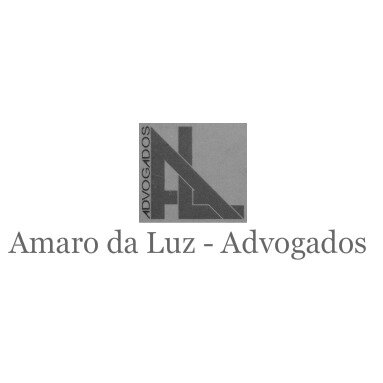Best Drunk Driving Lawyers in Coimbra
Share your needs with us, get contacted by law firms.
Free. Takes 2 min.
List of the best lawyers in Coimbra, Portugal
About Drunk Driving Law in Coimbra, Portugal
Drunk driving, known locally as "condução sob efeito do álcool", is a serious offense in Coimbra, Portugal. The legal blood alcohol concentration (BAC) limit is set at 0.5 grams per liter. Exceeding this limit not only poses a significant risk to public safety but also attracts stringent legal repercussions. The authorities in Coimbra, as in the rest of Portugal, actively enforce these laws to deter drunk driving and maintain road safety. Consequently, understanding the intricacies of these laws is crucial for both residents and visitors.
Why You May Need a Lawyer
There are several situations where individuals may require legal assistance in the context of drunk driving:
- If you are charged with driving with a BAC over the legal limit, you could face serious penalties. A lawyer can help you understand the charges and potential defenses.
- Accidents involving drunk drivers can lead to complex legal proceedings. Legal counsel can assist in navigating claims for damages or defending against them.
- Repeat offenders often face harsher penalties. A legal professional can negotiate reduced sentences or alternative measures.
- Foreign nationals charged with drunk driving may face deportation or travel bans, making it crucial to have legal representation familiar with both local and international law.
- If your driving license is suspended, an attorney can assist in arranging an appeal or applying for a temporary license.
Local Laws Overview
The legal framework regarding drunk driving in Coimbra operates under Portugal's national traffic laws. Key aspects include:
- BAC Limits: As mentioned, the limit is 0.5g/L. Professional drivers adhere to stricter limits of 0.2g/L.
- Penalties: Penalties vary with BAC levels and include fines, incarceration, and license suspensions. For BAC levels between 0.5g/L and 0.8g/L, fines range from €250 to €1,250 with a driving suspension of one month to one year.
- Testing Procedures: Police can conduct roadside breath tests. Refusal to comply can result in penalties equivalent to the highest level of intoxication under the law.
- Aggravated Drunk Driving: Beyond 1.2g/L, offenders may face imprisonment and administrative offenses.
- Underage Drivers: Zero tolerance policy applies, with harsher penalties for underage drinking and driving.
Frequently Asked Questions
What happens if I refuse a breathalyzer test?
Refusing a breathalyzer test in Portugal can result in penalties similar to those for driving with a BAC over 1.2g/L, which may include heavy fines and imprisonment.
Can I negotiate my penalties?
In some cases, a legal representative can negotiate penalties, especially for first-time offenders. Alternative arrangements such as community service or awareness courses might also be possible.
Are there increased penalties for causing an accident?
Yes, causing an accident while driving under the influence can lead to increased penalties, including counts of negligence, which carry further sanctions.
How does a prior offense affect my case?
Having prior offenses can result in harsher penalties and shorter leniency during proceedings. It’s crucial to have experienced legal representation in such situations.
What is the process for regaining my license after suspension?
After the suspension period, you typically need to demonstrate abstinence from alcohol, complete a rehabilitation program, and may need to retake driving tests.
Can I drive in other countries if my Portuguese license is suspended?
No, a suspension in Portugal generally reflects on an EU-wide level, prohibiting you from legally driving in other member states as well.
How does reaching the BAC level of 0.5g/L affect my insurance?
Driving with a BAC over the limit can cause your insurance premiums to rise and might lead to coverage refusals or cancellations.
Will a drunk driving offense appear on my criminal record?
A BAC of 0.5-1.2g/L is an administrative offense. Over 1.2g/L results in a criminal record, which affects employment and travel opportunities.
Do police have the right to test passengers?
No, police do not typically test passengers unless there’s a specific reason, such as suspected involvement in an offense or incident.
What assistance is available for foreigners facing drunk driving charges?
Foreign nationals should seek legal advice immediately. Embassies can provide guidance, and translators might need to be arranged for hearings.
Additional Resources
There are several resources available for those seeking advice or assistance with drunk driving cases:
- Direção-Geral de Viação (DGV): The National Road Safety Authority provides information on road safety and legal requirements.
- Public Defender's Offices: Available for legal assistance if you cannot afford private representation.
- Local Law Firms: Specializing in traffic law, these firms offer specific expertise in dealing with drunk driving cases.
- Embassies and Consulates: For foreign nationals, these can offer initial assistance and referrals.
- Alcoholics Anonymous Portugal: Provides support to individuals struggling with alcohol dependence.
Next Steps
If you find yourself facing a drunk driving charge in Coimbra, Portugal, it is crucial to act promptly. Here are some steps to guide you:
- Contact a qualified lawyer immediately to get specific legal advice.
- Gather any evidence or documents related to the incident, such as a police report or witness contacts.
- Consider reaching out to your insurance company to understand the impact on your policy.
- Attend all legal proceedings and comply with any preliminary legal requirements as instructed by your lawyer or the court.
- Explore rehabilitative programs if alcohol dependency is a factor, as this can be beneficial both legally and personally.
By taking these steps, you can ensure that you are moving forward in a manner that protects your rights and minimizes any negative impact on your future.
Lawzana helps you find the best lawyers and law firms in Coimbra through a curated and pre-screened list of qualified legal professionals. Our platform offers rankings and detailed profiles of attorneys and law firms, allowing you to compare based on practice areas, including Drunk Driving, experience, and client feedback.
Each profile includes a description of the firm's areas of practice, client reviews, team members and partners, year of establishment, spoken languages, office locations, contact information, social media presence, and any published articles or resources. Most firms on our platform speak English and are experienced in both local and international legal matters.
Get a quote from top-rated law firms in Coimbra, Portugal — quickly, securely, and without unnecessary hassle.
Disclaimer:
The information provided on this page is for general informational purposes only and does not constitute legal advice. While we strive to ensure the accuracy and relevance of the content, legal information may change over time, and interpretations of the law can vary. You should always consult with a qualified legal professional for advice specific to your situation.
We disclaim all liability for actions taken or not taken based on the content of this page. If you believe any information is incorrect or outdated, please contact us, and we will review and update it where appropriate.











